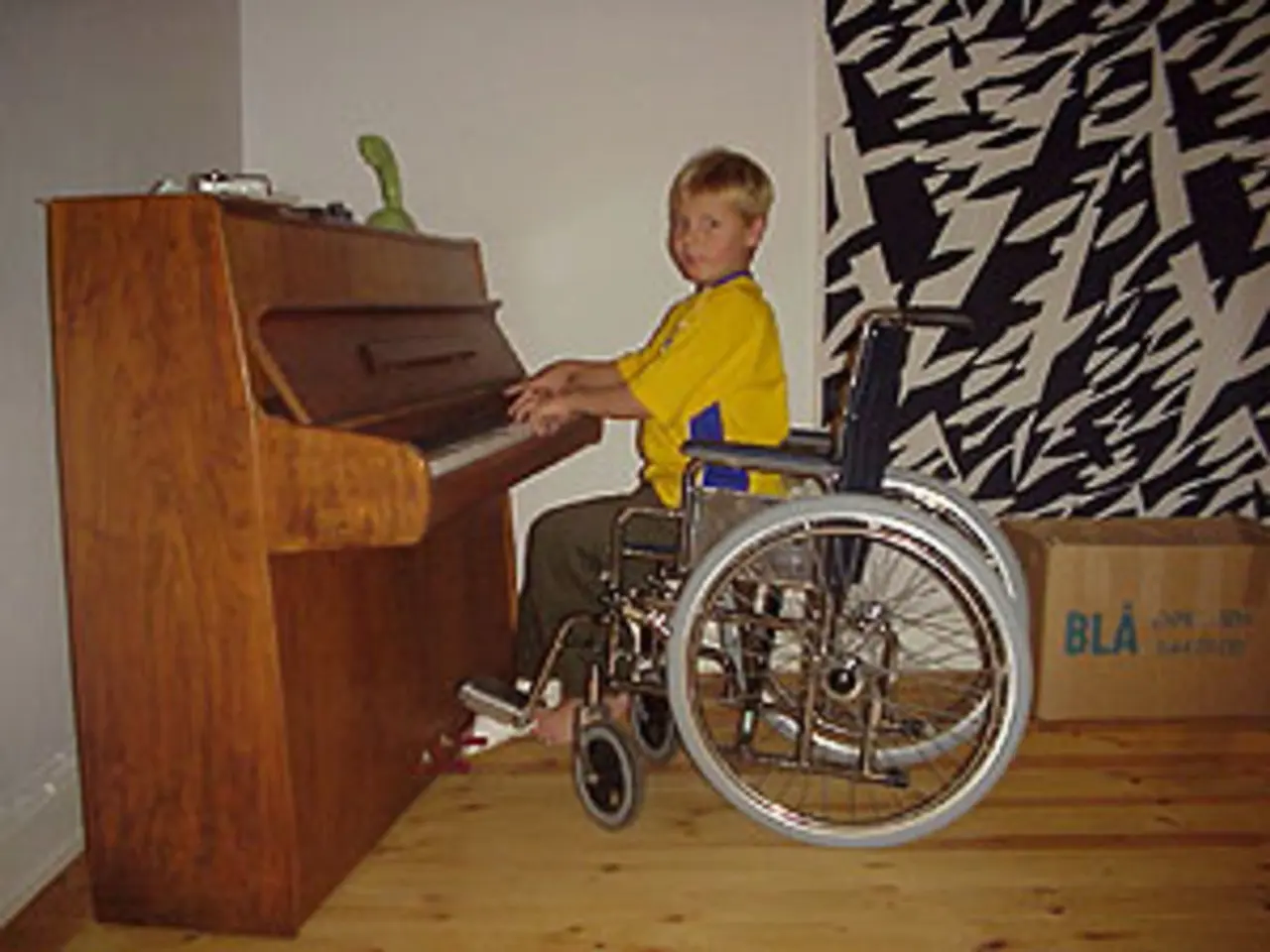Support and Resources for Teenagers and Young Adults with Autism: Navigating Assistance and Guidance
In the United States, a host of independent living support programs are making a significant difference in the lives of young adults with Autism Spectrum Disorder (ASD). These programs are designed to help individuals with ASD improve their communication and social skills, allowing them to live more independently and succeed in the workforce.
ASD is a neurodevelopmental disorder that affects social communication and interaction skills. As a spectrum disorder, symptoms and severity vary widely among individuals. Young adults with autism may face unique challenges as they transition into adulthood, such as difficulty with social communication and interaction, and executive functioning skills.
One of the top programs for young adults with autism is the New Directions for Young Adults (NDFYA) in South Florida. This program offers comprehensive transitional support, including job coaching, career planning, social skills training, life skills development, and transitional housing specifically designed for young adults with autism and other special needs. The program emphasizes personalized plans and long-term support to promote confidence and independence.
Another notable program is the Waterfall Canyon Academy, which provides community-based licensed residential treatment and transitional programs for neurodiverse young adults (ages 18-25). The program supports a gradual progression toward independence with customized assessment and planning for each participant's potential.
The Northeast Arc’s Guided Personal Supports (GPS) program offers 1:1 support and coaching for adults 22+ with developmental disabilities, including autism. Services focus on life skills, social skills, employment coaching, college navigation, and community integration to enhance independence. The program also runs social groups and respite retreats to build social and independent living skills in a supportive environment.
Glenwood, a nationwide nonprofit, provides over 30 treatments and services for children and adults with autism, including support for behavioral health and independent living skills.
Broader national resources such as those from the Autism Society, Autism Speaks, and the Autistic Self Advocacy Network (ASAN) offer toolkits, advocacy, and connections to local programs that can aid young adults with autism in developing independent living skills.
These programs stand out because they combine individualized supports across key areas such as employment, social skills, life skills, and housing, recognizing the unique needs of autistic young adults transitioning to independence. Selecting the right program depends on geographic location, specific needs, and personal fit with program approaches.
It is important to recognize the unique strengths and abilities of individuals with autism, such as visual thinking, attention to detail, and problem-solving skills. These programs offer training in areas such as cooking, cleaning, and personal hygiene, and may also provide assistance with finding housing, managing finances, and accessing community resources.
These programs offer job training, job placement services, and ongoing support. In addition, they may provide support for families and caregivers. Some educational programs offer individualized education plans, while others offer group learning environments.
ASD is usually diagnosed in early childhood, but some individuals may not receive a diagnosis until later in life. Regardless of when a diagnosis is made, these independent living support programs can help young adults with autism develop the skills they need to live independently and thrive.
- The comprehensive support provided by programs like New Directions for Young Adults (NDFYA) in South Florida, Waterfall Canyon Academy, and Northeast Arc’s Guided Personal Supports (GPS) program, cater specifically to young adults with autism, focusing on job coaching, career planning, social skills training, life skills development, and housing aid for personal and career development.
- Learning institutions, such as Glenwood and broader national resources like the Autism Society, Autism Speaks, and the Autistic Self Advocacy Network (ASAN), offer toolkits, advocacy, and connections to local programs that aim to aid autistic young adults in developing essential independent living skills, including cooking, cleaning, personal hygiene, managing finances, and accessing community resources.
- These independent living support programs play a crucial role in helping individuals with Autism Spectrum Disorder (ASD) improve their communication and social skills, allowing them to better navigate medical-conditions and neurological-disorders associated with ASD and promoting personal-growth and career-development through education-and-self-development opportunities.




